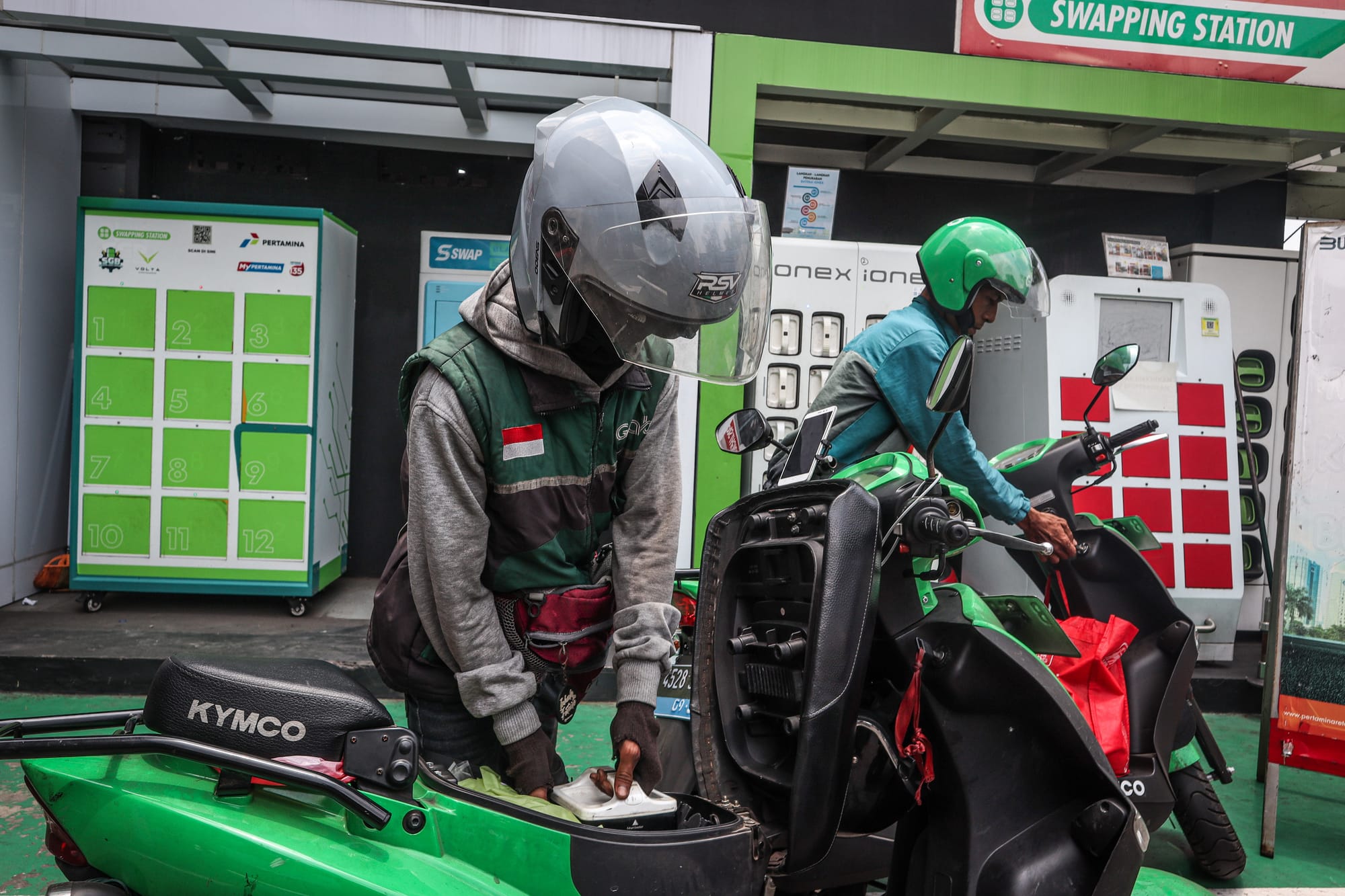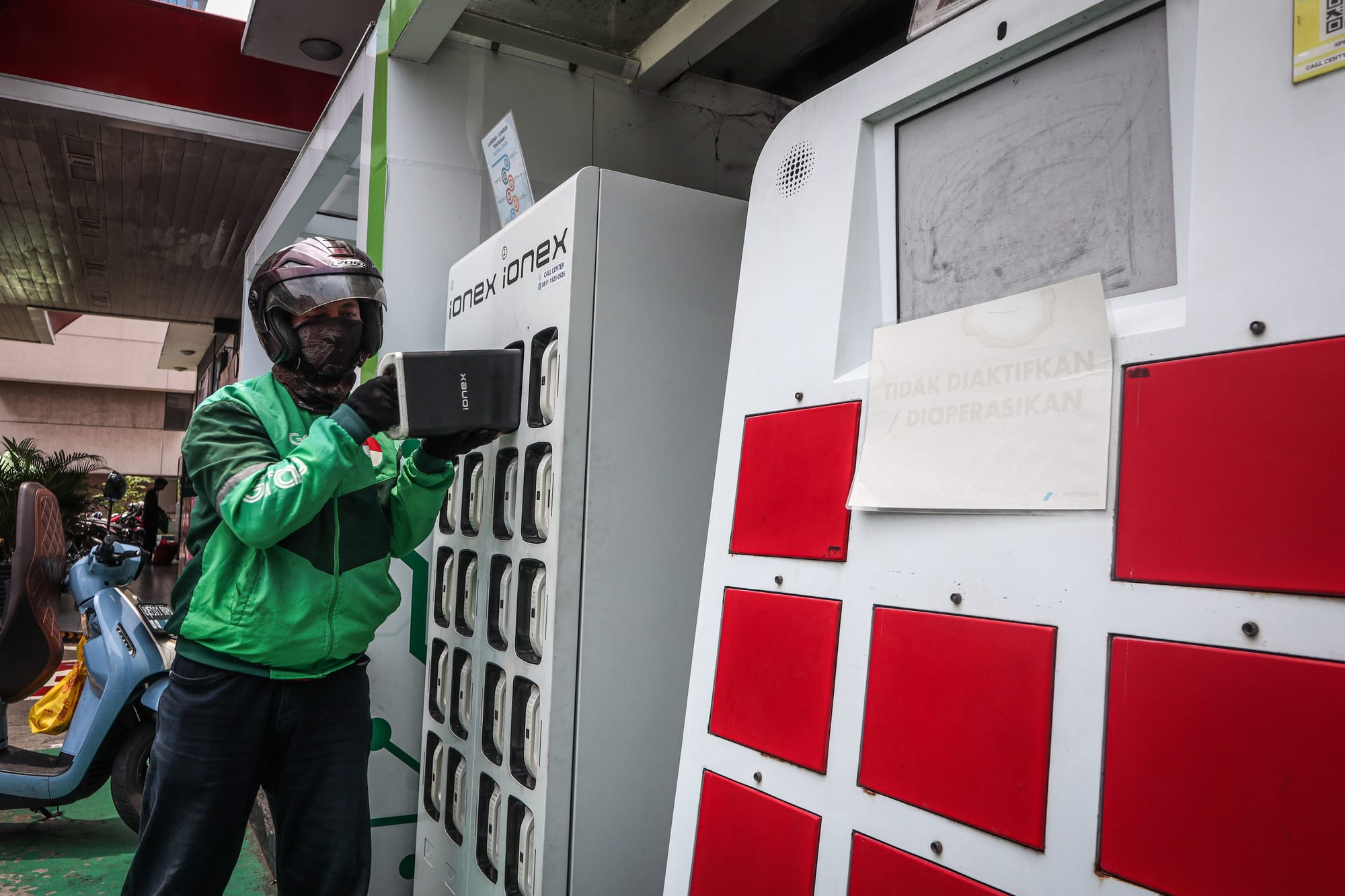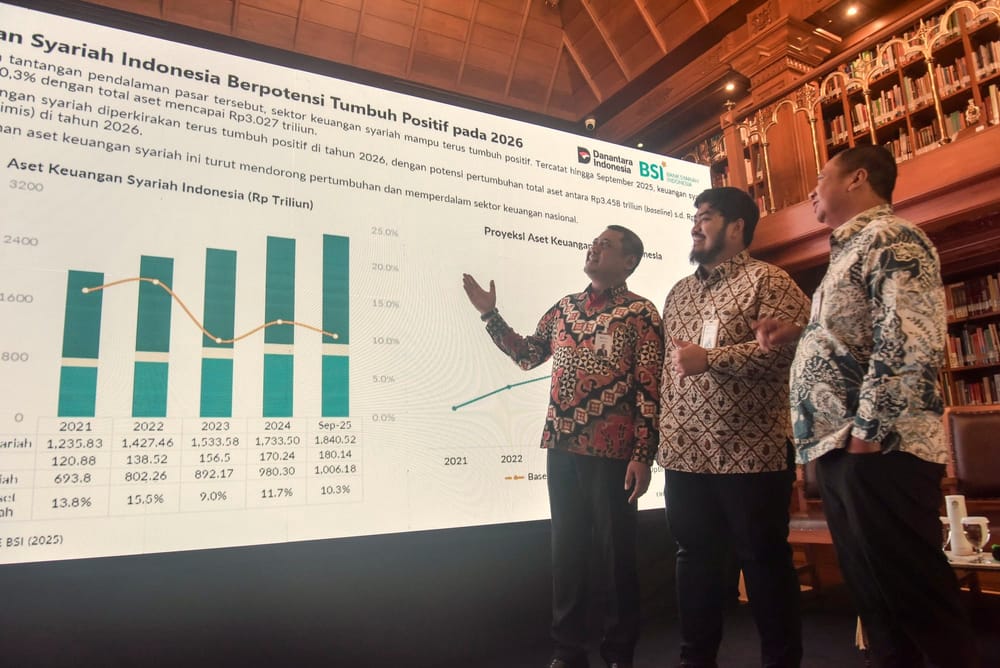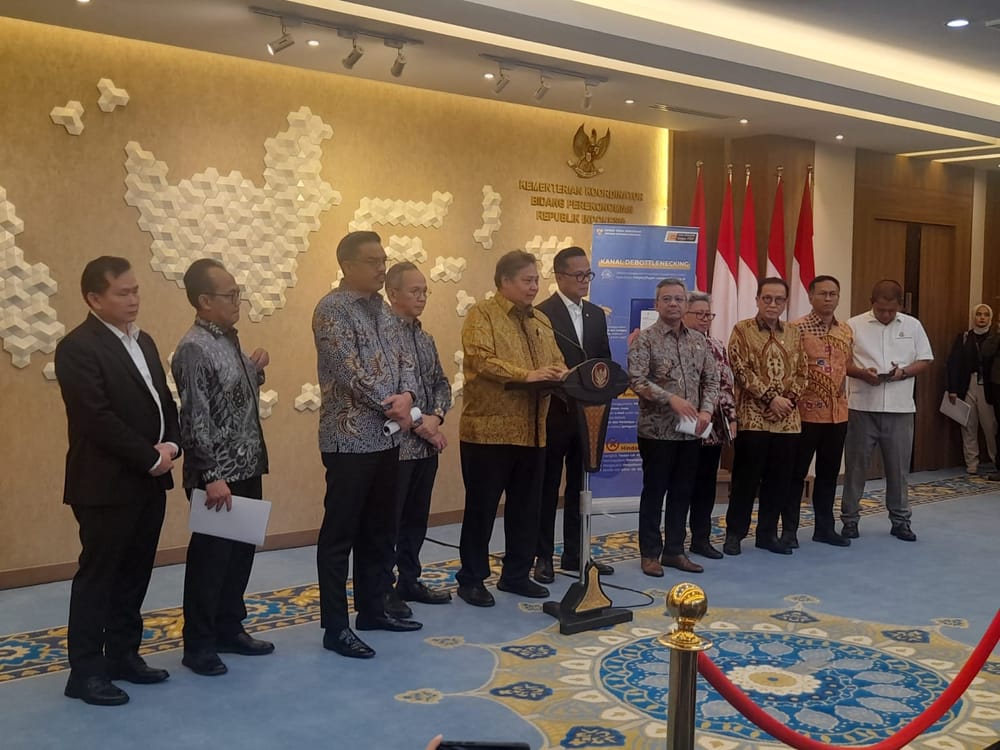The government's discourse to include online motorcycle taxi (ojol) drivers into the micro, small and medium enterprises (UMKM) category is being responded to cautiously by the banking sector.
Chief Economist of Bank Permata, Josua Pardede, assesses that the national banking system is basically ready to accommodate ojol drivers as recipients of financing, provided that the expansion is carried out gradually and based on data. The current banking resilience is quite strong with high capital and a low ratio of non-performing loans.
"Our financing system is basically ready to accommodate this segment as long as the expansion is carried out gradually and based on data," said Josua when contacted on Wednesday (10/29/2025).
According to him, the concept of collateral needs to be adjusted to the character of digital work which is different from conventional businesses. Regulations have opened up opportunities for forms of collateral that are not only in the form of physical assets, but also based on business activities and performance track record.
“For online motorcycle taxis, this can be translated into a history of daily income, consistency of working hours, cancellation ratio, service rating, and cash flow in the partner's wallet that is automatically deducted as a repayment mechanism,” he said.
In assessing the ability to pay, Josua explained that banks can replace conventional evidence such as financial reports with objective and consistent digital performance data. The assessment can include the driver's character and work discipline, payment capacity based on daily net income, and business conditions in the operational area.
Schemes such as automatic deductions from partner wallets, restrictions on the ratio of installments to income, and protection through microinsurance, he said, can reduce the risk of default without burdening drivers.
Although financing opportunities are open, Josua reminded that expanding credit without strict supervision can pose a risk of increasing the ratio of non-performing loans or Non-Performing Loans (NPL). The fluctuating income of drivers makes this segment vulnerable to changes in economic conditions. Therefore, Josua believes it is important for banks to limit credit exposure per platform, prepare adequate reserves, and monitor NPL ratios in detail in each region.
From a policy perspective, Josua emphasized the need for comprehensive steps to ensure that expanding access to financing for online motorcycle taxi drivers remains safe for the banking sector. This includes implementing a data-based assessment system integrated with alternative credit rating agencies, as well as optimizing program credit guarantee schemes so that risks are shared between the government, banks, and digital platforms. He believes that the principle of prudence must be the foundation of every financing policy in the digital sector.
Josua believes that a balance between expanding access and controlling risk can be achieved through cross-agency coordination and the implementation of prudential policies. “With this policy package, access to financing for online motorcycle taxi drivers can be expanded without sacrificing stability,” he said. The implementation of microinsurance, a transparent automatic deduction mechanism, and OJK supervision of digital microcredit portfolios can keep the financial system stable amidst the expansion of new financing.
Read also:

Echoing Josua, Director of the Digital Economy Center of Economic and Law Studies (Celios), Nailul Huda, believes that banks have their own standards in disbursing credit, including for online motorcycle taxi drivers. Each bank already has a credit scoring system to assess the feasibility of borrowers and can utilize alternative data such as total income.
“With the latest OJK regulations regarding the ease of UMKM credit, the distribution of credit to online motorcycle taxi drivers can utilize data other than banking data,” said Huda.
The unstable income of drivers can indeed be a factor reducing credit value, but Huda believes that is not the main issue. According to him, this type of income pattern is similar to other umkm players who have fluctuating turnover, so banks can still assess the ability to pay based on the consistency and growth of driver performance from time to time.
Data from the Financial Services Authority (OJK) shows that the portion of UMKM credit to total banking credit continues to decline, reaching around 19% of the total Rp8,075 trillion as of August 2025.
Credit growth in this sector is also slowing down, growing only 1.35% annually, with the NPL ratio recorded at 4.7%. Meanwhile, the UMKM NPL ratio was recorded at 4.7% in August 2025, up from 4.53% in the previous month.
Strict regulations
Secretary General of the Indonesian UMKM Association (Akumindo), Edy Misero, said that the main problem is not the low interest of business actors, but the strict requirements from the banking sector.
Many UMKM actors are asked for collateral even though the loan value is below Rp100 million. “We have prepared business data, simple financial reports, passed the OJK SLIK, and all the administration is complete. But we are still asked for collateral,” he said.
Edy believes that these conditions make it difficult for business actors to obtain fast and flexible working capital. As a result, many UMKM actors end up seeking alternative financing outside of banking in order to survive. Edy emphasized that simplifying credit disbursement procedures is key to ensuring that financing policies can truly reach small business actors and encourage economic growth.
As previously reported, Minister of UMKM Maman Abdurahman is preparing a policy to include online motorcycle taxi drivers in the UMKM category. This step is expected to expand access to financing for drivers through the People's Business Credit (KUR) program with an interest rate of 6 percent per year.
Maman explained that online motorcycle taxi drivers are part of the digital economy ecosystem which includes applicators, online merchants, and food ordering service providers. Therefore, regulations are needed that provide protection and recognition for them as independent business actors who are entitled to productive financing.
The Ministry of UMKM is said to have submitted this proposal to the Coordinating Ministry for Economic Affairs and the Ministry of State Secretariat for further review. The government is considering forming a regulation in the form of a Presidential Regulation or a Government Regulation so that online motorcycle taxi drivers have a clear legal basis as business actors who can access KUR.
Maman added that the plan will refer to Law Number 20 of 2008 concerning UMKM and Government Regulation Number 7 of 2021 concerning Facilitation, Protection, and Empowerment of Cooperatives and UMKM.
“In addition, there is human resource development training, and progressive tax incentives of 0.5 percent for micro, small, and medium enterprises with a turnover of under Rp 4.8 billion per year,” explained Maman.







